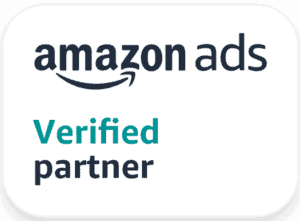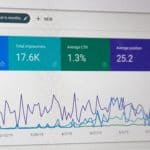Google’s Pigeon Update And Will It Affect Your Online Presence?
With the recent news out of Google that adding an extra layer of security to your website with an SSL certificate could potentially boost your organic rankings, other (perhaps equally important) news has been eclipsed. Mid-July saw a relatively large update to Google’s local search algorithm (a follow up to its Hummingbird update). This new update includes more precise location parameters within local search as well as the application of existing traditional web ranking factors to local listings.
Dubbed the “Pigeon” update by Search Engine Land, this change has had a significant impact on local queries. It appears that one drastic result of this update is that directory sites like Yelp have gotten a boost, solving what another Search Engine Land article refers to as Google’s “Yelp problem.” Where before search results seemed to have been favoring local websites and Google Plus content, they now seem to favor Yelp results. This isn’t necessarily a good thing for many businesses; in fact, this may have created more difficulties than it has solved problems. That being said, when we think about users, most are accustomed to looking for those Yelp reviews first, so perhaps this does serve searchers more efficiently. Only time will tell, as webmasters closely monitor their organic traffic.
Some speculate that the Pigeon update represents Google’s efforts to bring the desktop experience more in line with the mobile experience; hyper-localization, then, is the priority.
What are some things we notice that could be related to the Pigeon update in this screenshot? First, where we might normally have been served about 7 Google Places listings in the results, we are only served 3. That’s a pretty significant change. Google is showing me the most relevant results in closest proximity. The Pigeon update emphasizes the importance geographic location, and provides fewer local results in hopes of providing the most relevant information.
Notice also that rather than websites of local restaurants, we are seeing pretty much all local directory sites – 2 spots are reserved for Yelp alone. There are a couple of blog posts thrown in, but this is pretty much a page full of directory listings.
Now, when we search for one of those specific restaurants:
Here, Urbanspoon has multiple spots locked down. Mediterranean Grill owns these hyper-local results– good thing the restaurant has a good reputation! Imagine if the Yelp reviews were not so good?
Advertising
Not only are AdWords campaigns important for remaining relevant in an ever-changing organic landscape, but there are also certain extensions you can take advantage of to stay ahead.
The “review” extension in your AdWords campaign could become more important with the Pigeon update. Advertising your stellar reviews is a good idea either way – it is obvious that users heed reviews more and more often. If Yelp and other directory sites – many that include reviews – are to become more prominent, using this AdWords extension is one way to keep up and in tune with the flow of the SERPs.
The Positives
What’s one important action you can take in the wake of the Pigeon update? Update your local listings – make sure you are a presence everywhere, not just on your own website. Ensure that your business’s name, address and phone number match across the board. Since this particular update has upgraded the importance of local directories relative to other sites, you’ll want your site to have increased visibility via Yelp, Yellowpages.com and others. This update gives you the opportunity to reach a specific audience, and own more real estate in the SERPs (which is beneficial if your reputation is solid).
The benefit of this update is the ability to really take the results by storm with good branding. Plus, when it comes to smaller businesses competing with giants, improved local rankings can only help reach a closer, more specific audience.
The Negatives
Local directory sites are taking important spots away from businesses – with multiple directory results sometimes showing up for a given keyword. This not only knocks other websites down a few spots in the results, but it also steals viable real estate from these same sites. Plus, if you have one angry reviewer, the damage may become even more obvious with this update.
Something that has also been noted: There is less duplication between local results and organic results, so if you achieve one, you are less likely to achieve the other. Let’s file that under not good, but also not bad – because on the one hand, it’s far less confusing to the user, but on the other hand, losing any real estate in the SERPs can hurt.
Takeaways
1. Incentivize customers to review your business on Google+, Yelp and other local directories. How? You can, for instance, print postcards and ask people to review your business and get 10% off.
2. Add the review extensions to your AdWords campaigns. Read Google’s policy on review extensions, first.
3. Add the social extensions to your AdWords campaigns. It’s an excellent way to get people engaged with your business and foster goodwill.
Summing Up
Here’s a quick review of Google’s Pigeon update, as it stands now:
- It has made local search more precise, and returns fewer Google Places results.
- It applies more traditional ranking signals to local listings.
- It seems to bolster directory sites more than anything.
- It represents the convergence of Google’s mobile and desktop strategies.
- It increases the importance of a good reputation and consistent local listings.
- It increases the value of AdWords campaigns – including the “reviews” extension.
Recent Posts
You’ve heard it here, you’ve heard it there, you’ve heard it from any SEO agency:…
Every month, our SEO team looks back on the previous months to determine wins, losses,…















